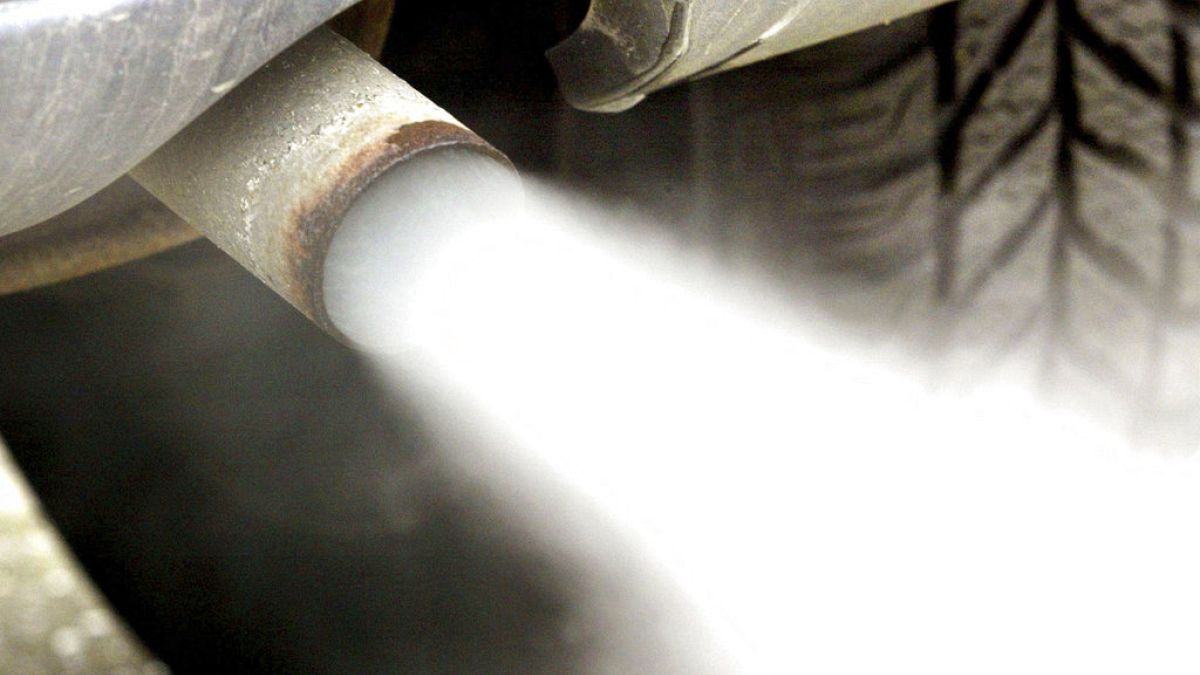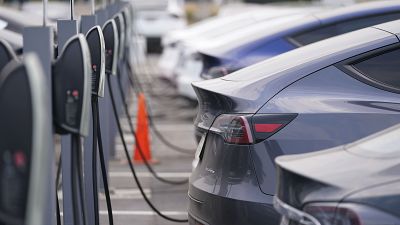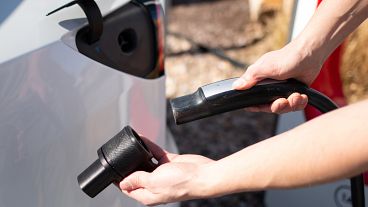MEPs are split over how transport companies should calculate their greenhouse gas emissions, having agreed that there should be a single formula for doing so.
Earlier this week lawmakers agreed by 58 votes in favour and 19 against to approve a report which would force transport companies making claims about the emissions of their vehicles to adhere to a single formula, but they remain at odds over how the formula should be calculated.
Lawmakers in a transport and environment joint committee supported draft rules that would see vehicle emissions levels account for the entire production process of the vehicle, not just the emissions from the fuel tank.
Centre-right European People’s Party (EPP) MEPs claimed that omitting emissions caused by production and recycling of electric vehicles could undermine European competition from non-electric vehicles.
MEP Pascal Canfin (France/Renew), leading the file in parliament, said in a press statement the new rules will incentivise more transparency of GHG emissions in the transport sector and help consumers to make informed choices.
But his colleague Barbara Thaler (Austria/EPP), also leading the legislative file in parliament and backed by several EPP lawmakers, insisted that battery electric vehicles cannot be seen as “zero-emission”, noting the bill fails to account for emissions caused by production and recycling.
So called 'life-cycle assessment' of electric vehicles would account for impact from raw material extraction to manufacturing, use, and disposal.
“The regulation still gives an unfair advantage to battery electric vehicles produced outside Europe. Without addressing the elephant in the room, the EPP cannot support this regulation," stated Thaler.
A parliamentary source said materials for such cars are sourced in a more environmentally friendly-way in the EU, leading to fewer CO2 emissions.
“On average, the cost of battery electric vehicles is 40% higher in the EU than in China. Turkey and the US also have an unfair advantage over the same cars made in Europe,” the parliamentary source told Euronews.
However, China and the US have advocated against the incorporation of a methodology to factor in GHGs emissions for production and recycling of battery electric vehicles proposed by the International Organisation for Standardisation (ISO), the parliamentary source added.
Martin Sander, Ford Model e Europe’s general manager, questioned how reliable a life-time assessment of CO2 emissions could be given the number of metrics involved, adding that in any case he saw no reason to fear an influx of cheaper imports.
"In the long run, and in general, we see that vehicles are being produced where the market is," Sander said. "I do not see that this principle is not going to apply, going forward, for electric vehicles."
“The Commission should be given time to study the feasibility and options for accounting life-cycle assessment emissions, instead of being forced to introduce a dysfunctional mechanism,” Edwin O’Connell, freight policy manager at the campaign group Transport & Environment told Euronews, urging the parliament to “swiftly approve” the report and allow its entry into force.
The draft rules amended by the transport and environment committees will be voted in an upcoming plenary session in Strasbourg. The legislative proposal will be taken up by the new parliament after the European elections on 6-9 June.
Subscribe here to stay informed on the latest EU policy developments with our weekly newsletter, “The Policy Briefing”. Your weekly insight on European rulemaking, policy issues, key events, and data trends.



